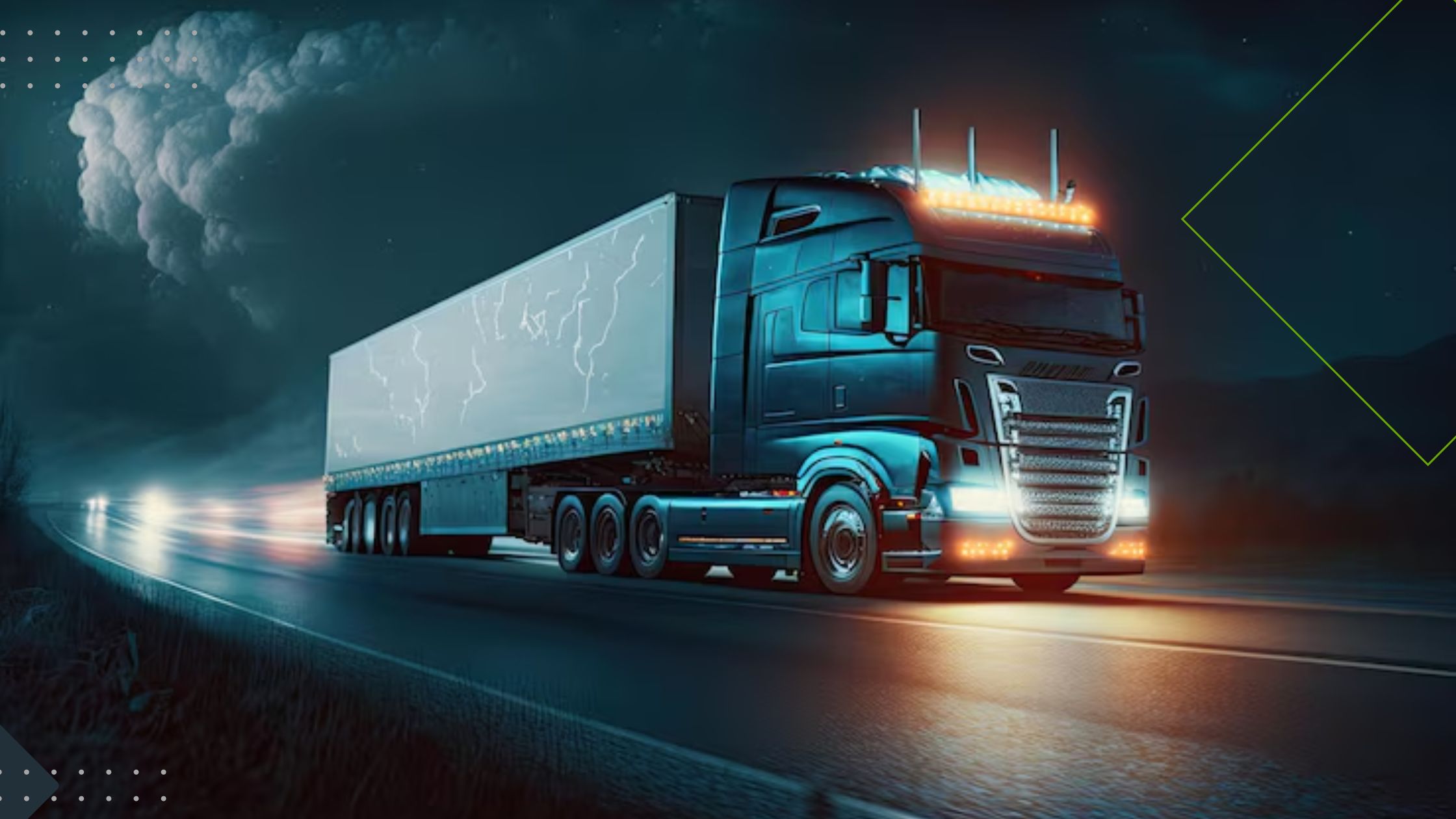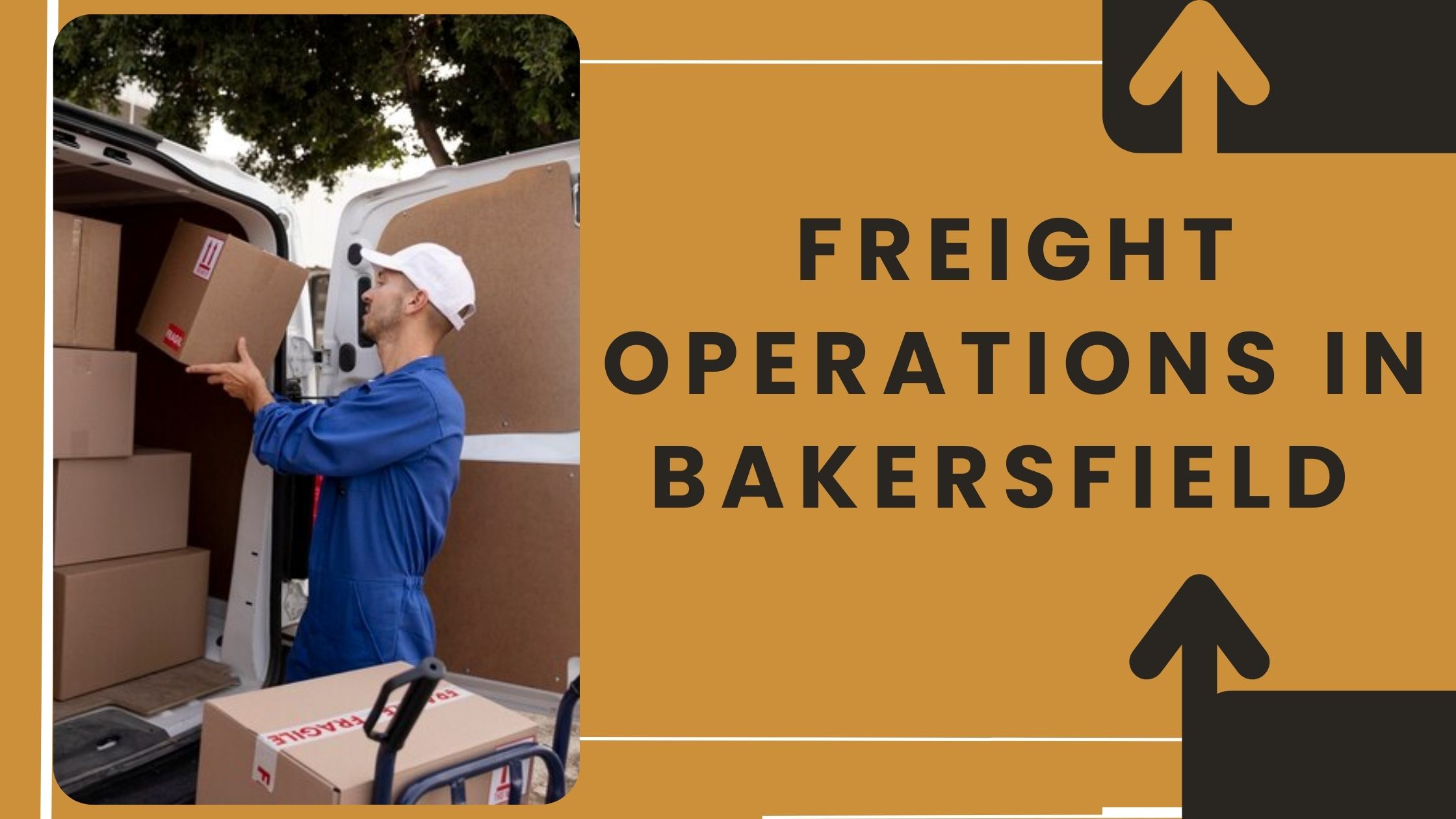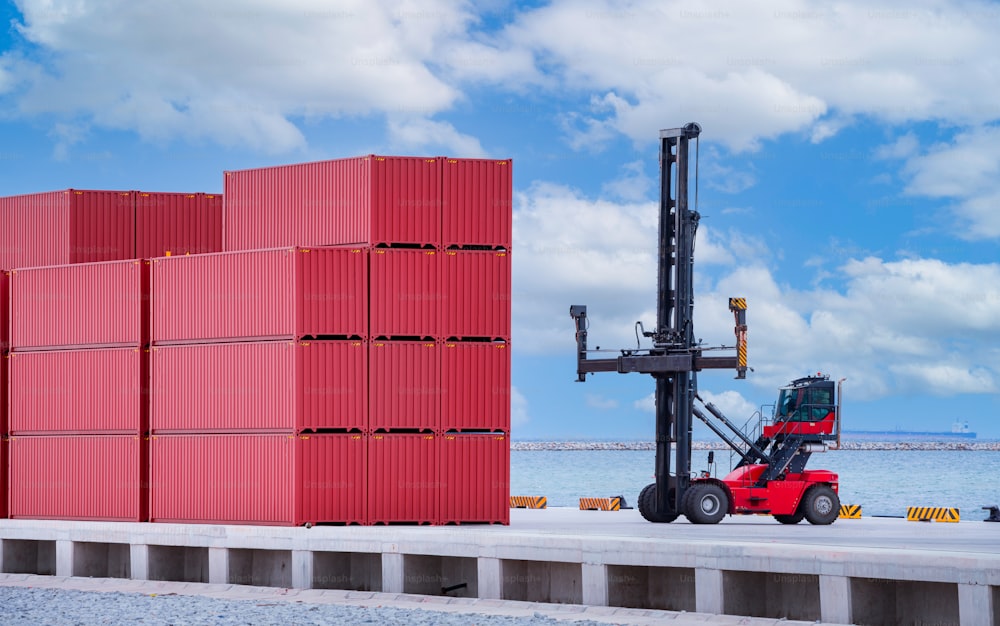Key Highlights
- Cross-docking is a smart way to handle things in supply chain management. It helps make distribution better and cuts down on costs.
- With its location and setup, Bakersfield, CA is great for doing cross-docking well.
- By adding cross-docking to your processes, you can save a lot of money and get things delivered faster.
- Picking the right items and using tech wisely are key steps for making cross-docking work right.
- Getting past the usual hurdles in cross-docking is important if you want it to really pay off.
Introduction
Welcome to Roadies Inc, right here in Bakersfield, California. We’re your go-to folks for all things cross-docking services. Our team is all about making sure your goods move smoothly and quickly from one truck to another without the hassle of storing them away first. With our eyes firmly on being reliable and efficient, plus giving you top-notch customer support every step of the way, we aim to boost how well your supply chain works. Count on us at Roadies Inc as your trusted partner for getting the job done right.
Understanding Cross-Docking in Supply Chain Management
Cross-docking is a smart way businesses have changed how they handle their supply chain and move goods around. It’s a strategic solution that makes distributing products cheaper and more efficient. Basically, cross-docking means moving items quickly through a warehouse instead of keeping them there for a long time. This method speeds up the process by taking goods off an incoming truck or container and putting them straight onto another vehicle to leave, cutting down on storage time.
The idea behind cross-docking is pretty straightforward: it skips the step of storing things in a warehouse for too long. By doing this, products get where they need to go faster, which saves money on handling and storage costs while also lowering the chance that items will become outdated before they’re sold.
The Basic Principles of Cross-Docking
At its core, cross-docking is all about moving goods quickly from one mode of transportation, such as trucks or containers, to another for immediate distribution. This means products don’t sit around in a warehouse for long. By doing this, companies can cut down on what it costs them to store and handle stuff the usual way. Understanding the basic principles of cross-docking, including the use of different modes of transportation such as trucks and containers, can greatly benefit businesses in terms of reducing costs and delivery times.
With cross-docking, everyone involved – like suppliers, makers of things, those who distribute them, and stores – needs to work closely together. They have to make sure everything goes where it’s supposed to go without wasting time. For this system to work right, there has got be good planning so that when products come in; they’re sorted out and put onto their next ride towards their final destination as smoothly as possible.
How Cross-Docking Streamlines Logistics
Cross-docking makes the whole process of moving stuff around a lot smoother by cutting down on how long goods hang out in a warehouse. This means there’s less messing about with handling and keeping things stored, which saves money. With this slick method, things get delivered faster and waiting times go down, making the supply chain work better as a whole.
When items show up at the cross-docking spot, they’re quickly sorted out and sent off to where they need to go next – like a store or distribution center or straight to whoever bought them. By doing this right away, we don’t have to keep stuff sitting around too long. This helps avoid having outdated stock lying around and keeps everything running more smoothly in getting products from A to B.
The Role of Bakersfield in Efficient Cross-Docking Operations
Bakersfield, CA sits in a spot that’s really handy for companies wanting to make their supply chain better by using cross-docking. With its place on the map, it’s super easy to get stuff quickly to important places in California, which makes it a top choice for sending goods out from there. On top of that, Bakersfield has all the right setups and partners in logistics ready to go, making sure things move smoothly and efficiently when they’re being transferred around.
Geographic Advantages for Businesses
In Bakersfield, CA, there’s a special benefit for companies wanting to make their supply chain better by using cross-docking. Because it’s right in the middle of California, getting to various markets is easier and cheaper. This helps businesses distribute their products more efficiently.
With its prime spot where important markets meet in California, Bakersfield is perfect for companies aiming to smooth out their logistics and distribution steps. Being close to big transportation networks means these businesses can get their goods out further and faster into the market.
Infrastructure and Logistic Partnerships in Bakersfield
In Bakersfield, the top-notch roads and partnerships with logistics companies are key to making sure goods can be moved quickly from one semi truck to another. With its modern facilities and networks for moving stuff around, this city makes it easy for semi trucks to efficiently transport goods, thanks to infrastructure and logistic partnerships. These partnerships include semi truck repair services, such as Lee Financial Services, that offer financing options and maintenance services to keep trucks running smoothly.
On top of that, Bakersfield works closely with a bunch of different service providers like Bakersfield trucking businesses, freight handlers, and other third-party groups involved in logistics. These strong relationships help make sure everything runs smoothly when moving items through the cross-docking process. With a strong focus on reliability, efficiency, and exceptional customer support, Bakersfield is a trusted partner in cross-docking services and infrastructure and logistic partnerships in Bakersfield, providing a strategic solution that optimizes your supply chain. This teamwork really steps up how well cross-docking works in Bakersfield.
Key Benefits of Cross-Docking for Your Business
By adding cross-docking to your business operations, you can see some great advantages. For starters, it can really cut down on how much you spend storing stuff. On top of that, it helps get your products out to customers faster.
Significant Reduction in Storage Costs
With cross-docking, you save a lot on what you’d usually spend to store stuff. Normally, keeping things in a warehouse means paying for the space, whether it’s rent or buying it outright. On top of that, there are bills for electricity and other services and money spent on workers who handle all the stored items. By skipping or really cutting down on using warehouses thanks to cross-docking, these costs drop significantly. Also, because goods aren’t sitting around as long waiting to be sorted and put away properly by lots of people working there reduces labor expenses related to organizing everything.
Quicker Delivery Times to Customers
With cross-docking, one of the main perks is that it helps get things to customers faster. By moving products quickly through the supply chain, there’s less waiting around and no need for steps that take a lot of time like keeping stuff in storage for ages or having to track everything super closely. This makes the whole process of getting orders ready and out the door much smoother and quicker. When orders are fulfilled faster, not only does this make operations more efficient but also customers tend to be happier and more likely to stick with your business. This can really set you apart from competitors in terms of how fast you deliver.
Implementing Cross-Docking in Your Operations
To get cross-docking right in your operations, you need to think things through and make sure everything’s working together smoothly. There are a couple of important points to keep in mind: first off, figuring out which products are best suited for cross-docking; and secondly, making use of the proper technology and tools needed for it to work well.
Identifying the Right Products for Cross-Docking
Cross-docking isn’t for every product out there. It’s really important to pick the right ones if you’re going with this strategy. Usually, products that sell fast, have a steady demand, and come in uniform packaging work best for cross-docking. With these kinds of products, they can be easily sorted and sent off to their final destination without having to sit around in storage for too long.
Technology and Tools Required for Effective Cross-Docking
To make cross-docking work well, you need to use some tech stuff like barcode scanners, software for keeping track of inventory, and systems to manage transportation. With these tools, you can keep an eye on goods in real-time, make sure suppliers and stores are working together smoothly, and get products sorted out right so that everything moves quickly from one truck to another without any hiccups.
Overcoming Common Challenges in Cross-Docking
Cross-docking can bring a lot of advantages, but it’s important to know that there are also some usual hurdles companies might run into when they start using this method for moving stuff around. Being prepared and having plans in place to deal with these issues is key.
Managing Timing and Scheduling
Timing and scheduling are super important for the success of cross-docking operations. It’s all about making sure everything works together perfectly, from when things arrive to when they leave. Roadies Inc. gets how crucial it is to get timing and scheduling right so that supply chain operations in Bakersfield run smoothly.
To make sure their cross-docking goes without a hitch, Roadies Inc. uses some pretty smart logistics management systems and tech. With these tools, they can keep an eye on shipments really well, which means they can plan better and avoid any hold-ups. By keeping track of when inbound trucks show up, they’re able to quickly move goods over to outbound vehicles so there aren’t any delays in getting stuff where it needs to go.
On top of this technology stuff, Roadies Inc.works closely with their clients too.They look at what each client needs like how much stuff is being moved,due dates,and even changes in what people want or need.This helps them tailor the cross-docking process just right.By focusing on managing time schedules,Roadies inc makes businesses in bakersfield more streamlined,cuts down costs,and keeps customers happy.
Ensuring Product Quality and Integrity
In cross-docking operations, it’s really important to keep the quality and wholeness of products in check. At Roadies Inc., making sure goods are handled safely and securely is a top priority so that everything arrives in Bakersfield just as it should – perfect.
To make this happen, they’ve got some strict rules for checking on how things are handled and stored while being moved around. With a team that knows what they’re doing because they follow the best ways of working and stick to safety rules tightly, there’s little chance for anything going wrong. They even have special places like cool rooms for stuff that needs to stay cold or extra care.
On top of all this, Roadies Inc. keeps an eye out through regular checks and audits to make sure everything meets high-quality standards and follows the law closely. They’re also pretty serious about keeping things secure so nothing gets stolen or messed with by someone who shouldn’t be there.
By putting product quality first, Roadies gives their clients peace of mind knowing their items are well looked after from start to finish during the cross-docking journey.
Real-World Examples of Successful Cross-Docking
To show how cross-docking really works well in different areas, let’s dive into two examples. These will highlight the good things about using cross-docking in both retail and manufacturing businesses.
Case Study: Retail Industry
In the world of selling stuff, using cross-docking has really changed the game for getting things where they need to go and keeping customers happy. A big store company started using cross-docking at their places where goods come in and out, which helped them spend less on keeping a bunch of items stored and made it faster to get orders out.
With cross-docking, this company didn’t have to keep products sitting around in storage areas anymore. This cut down on the chance that items would become outdated before being sold, plus it saved money on moving stuff around and storing it. Items went straight from incoming shipments right onto trucks heading out, making sure stores got their deliveries much quicker.
This led to a smoother process with shorter wait times and better ability to react quickly when people wanted something different. By adding cross-dockings into how they do things, the store saw big savings in costs, managed their inventory better than ever before,and left more customers feeling satisfied.
Case Study: Manufacturing Industry
In Bakersfield, a top manufacturing company really changed the game in their supply chain by getting into cross-docking. This move was smart because it cut down on the need to keep things stored for a long time and helped them save money on keeping track of inventory, moving stuff around, and finding space to store everything. With products quickly going from being made to getting into customers’ hands, managing inventory became smoother.
Thanks to cross-docking, this manufacturer could make their shipping process way more efficient. They combined shipments together which meant they didn’t need as many trucks or trips for delivering goods. This not only saved them a bunch of money but also made their distribution method leaner and greener.
On top of that, they got better at responding when people wanted more or less of what they were selling because they could easily change how much stock they had based on what was happening right then and there. By diving headfirst into cross-docking practices, this company managed to do things faster and cheaper while being able to adapt quickly in the ever-changing market.
Choosing a Cross-Docking Partner in Bakersfield
Finding the right partner for cross-docking in Bakersfield is key to making your supply chain work well. Roadies Inc. shines as a dependable choice, known for their quick and budget-friendly services.
When looking around for someone to team up with on cross-docking, it’s important to keep a few things in mind. At the top of that list are trustworthiness and how much experience they have under their belt. With its solid history of success, Roadies Inc. brings plenty of know-how to the table.
The location of Roadie Inc.’s Warehouse Cross-Dock facility being in Bakersfield matters too because it sits where major California markets meet. This spot makes getting goods out faster cheaper since you’re closer to many places at once.
Being fast and efficient is super important when moving products this way, and that’s something Roadies Inc does really well at ensuring items zip through without wasting time. This means customers get what they ordered sooner which makes them happy and keeps you ahead in business competition.
Another big plus about choosing a cross-docking partner like them comes down saving money by cutting back on how long stuff needs storing or spending less overall warehouse costs. They even let businesses tweak services so everything fits just right with what they need achieving cost-effectiveness while still hitting targets
On top another benefit from working together with Roadies Inc includes easier access bigger transportation networks thanks Bakersfield great position helps move things along smoother giving companies chance reach more people easily
So picking Roadies Inc as your go-to for cross dock services Bakersfield not only taps into their deep expertise but also leverages benefits such strategic positioning efficiency speed savings customization options all leading better connectivity across transport routes
Criteria for Selecting a Logistics Partner
When you’re on the lookout for a cross-docking services partner, there are several key points to keep in mind. These will help make sure your partnership works out well and runs smoothly.
First off, reliability is super important. You want a logistics partner who’s known for getting things done without any hitches and always on time. It’s wise to do some digging into what others say about them – look up reviews or ask around among other clients to get the scoop on how dependable they are.
With experience comes knowledge, so picking someone with plenty of it in handling cross-docking operations can really pay off. They’ll know all the ins and outs, from staying safe to following rules, which means less for you to worry about.
Where this partner is located matters too. Ideally, they’d be right where all the action is – close enough to big markets or transport hubs that moving stuff around doesn’t cost an arm and a leg.
Then there’s flexibility and being able to customize their service based on what your business specifically needs – whether that’s dealing with items that need extra care or just different kinds of goods altogether.
Having open lines of communication also counts for a lot; knowing you’ll get updates regularly about where your shipments stand or if there are any bumps along the way makes everything more manageable.
Lastly but not leastly (if that’s even a word), keeping an eye on costs matters too! Sure, finding someone cheap as chips might sound great at first glance but remember: good quality work usually isn’t dirt cheap either.
So when businesses in Bakersfield go looking for their perfect match in logistics partners especially focused on cross-docking services considering these factors should steer them towards making choices they won’t regret later down the line
Reviewing Performance and Reliability
Keeping an eye on how well and reliably your cross-docking partner is doing is key to keeping a good working relationship. For companies in Bakersfield, it’s important to check up on their logistics buddy regularly to make sure they’re living up to what was promised.
One method for this is by looking at important numbers like whether deliveries are made on time, if orders are correct, and how happy customers are. By watching these figures closely, you’ll get a clear picture of the overall performance and see if they’re hitting the targets set together.
Talking often with your logistics friend matters too. It opens the door for honest chats about any problems or worries that might pop up. Dealing with these quickly helps keep things smooth between both sides.
On top of that, having regular checks and feedback sessions can be really helpful for everyone involved. These moments can spotlight areas that need some work and maybe even lead to tweaking the agreement here and there when needed.
Another big thing to watch out for is reliability. A dependable cross-docking partner should always be punctual, stick to quality standards consistently, and manage surprises well without dropping the ball.
By staying vigilant about checking both how reliable and effective your cross-docking ally in Bakersfield is ensures your supply chain stays streamlined cost-effective ,and trustworthy
Conclusion
Wrapping things up, using cross-docking in Bakersfield can really help cut down on costs and make deliveries faster. By getting the hang of how it works and making sure operations are running smoothly, companies can save money on storing stuff and get their products to customers more quickly. With its good location and strong logistics partnerships, Bakersfield makes these processes even better. To nail cross-docking, timing is everything, and keeping your goods in top shape is key. There are plenty of real-life stories out there showing just how well this approach can work for managing a supply chain. Picking a logistics partner that fits perfectly with your needs is super important for making sure everything goes without a hitch. If businesses plan carefully and use the right tools, they can really improve how they operate and boost efficiency across their entire supply chain.
Frequently Asked Questions
What is the minimum volume required for cross-docking?
The smallest amount you need for cross-docking changes based on a few things. These include what kind of items you’re dealing with, how much can be transported at once, and the particular features of the cross-docking place you’re using. With Roadies Inc., guidance is tailored to fit exactly what you need.
How does cross-docking differ from traditional warehousing?
Cross-docking is a bit different from what we usually see in traditional warehousing because it’s all about moving goods straight from the shipments that come in to the trucks or trains going out, which really cuts down on how long things need to be stored. On the other hand, with traditional warehousing, items tend to sit around for quite some time in either a distribution center or warehouse before they’re sent off.
Can cross-docking be used for perishable goods?
Absolutely, perishable items can benefit from cross-docking. At Roadies Inc., we provide services for cross-docking that are temperature-controlled. This means we make sure these products are handled, processed, and sent off in the right conditions to get them safely to their final destination.
What are the first steps to transitioning to a cross-docking model?
To start moving towards a cross-docking setup, you first need to take a good look at your existing supply chain. With that done, figure out where it could be better and pick someone reliable for cross-docking, such as Roadies Inc. They’re there to help guide and support you every step of the way in this changeover process.































